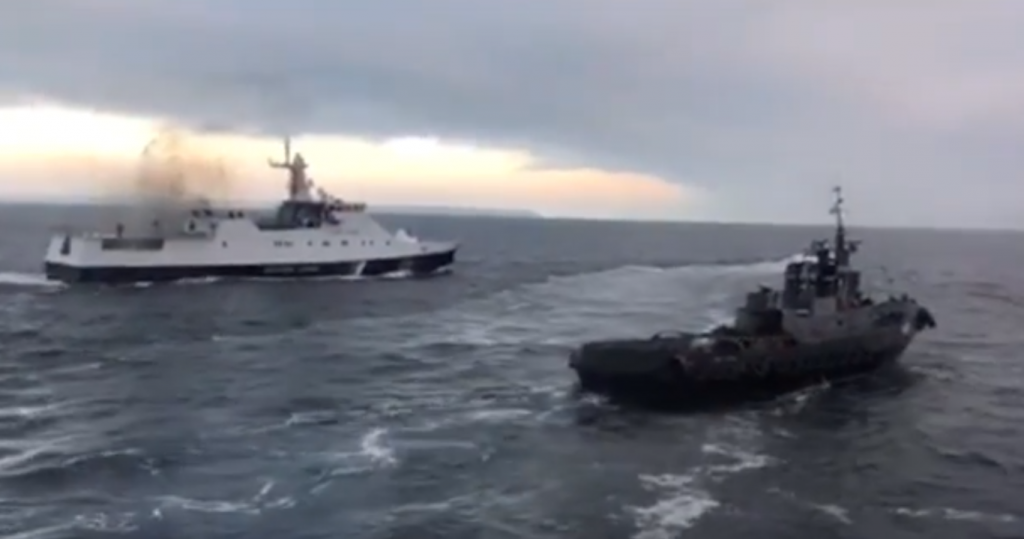
Naval conflict in the Kerch Straits unlikely to have serious immediate consequences

Russian coast guard boat (left) preparing to ram a Ukrainain tugboat near Kerch Strait
What happened
A new escalation in Russia’s undeclared war with Ukraine has forced President Donald Trump to cancel his meeting with Putin at the G20 and European countries have called for new sanctions. But the reaction of the markets shows that no one believes there will be serious consequences. Both governments are using the border conflict for domestic political gain.
- The first direct confrontation between Russia and Ukraine took place on November 25 in the Kerch Straits off the coast of Crimea, the Ukrainian region Russia annexed in 2014. Ukrainian naval vessels tried to pass through the straits, but Russian boats attacked them and impounded the vessels, injuring several Ukrainian sailors in the process. Now, Russia is accusing Ukraine of trying to illegally cross the border, and Ukraine accuses Russia of military aggression. In the aftermath, Ukrainian President Petro Poroshenko introduced martial law. His political opponents say this was an attempt to influence the outcome of the presidential elections in March; polls show Poroshenko is currently trailing Yulia Timoshenko, the candidate with whom Russia would prefer to work.
- The EU, NATO and the U.S. criticized Russia, and Trump, who spent 4 days without commenting, eventually cancelled his planned meeting with Putin at the G20 summit in Buenos Aires. This must have been painful for the Kremlin: on Thursday morning, Putin’s press secretary, Dmitry Peskov, had spoken at length about the importance of the encounter.
- On the first day after the incident, the Russian market suffered, and the ruble lost 1.5% against the U.S. dollar. But that was it. By Tuesday, the Russian Ministry of Finance had no trouble issuing €1 billion of Eurobonds at 3%. The interest rate shows that the geopolitical risks were already priced in and haven’t increased noticeably, according to debt market analyst Alexander Kudrin. After falling on Monday, the ruble returned to its earlier levels and on Thursday it strengthened even as Trump tweeted about cancelling his meeting with Putin.
Why the world should care
Over the last year, the number of international investors putting money in Russia has fallen, but those who remain generally ignore the headlines. The most important variable for Russian securities is new U.S. sanctions and the market does not believe the current escalation makes another round of sanctions any more likely.




